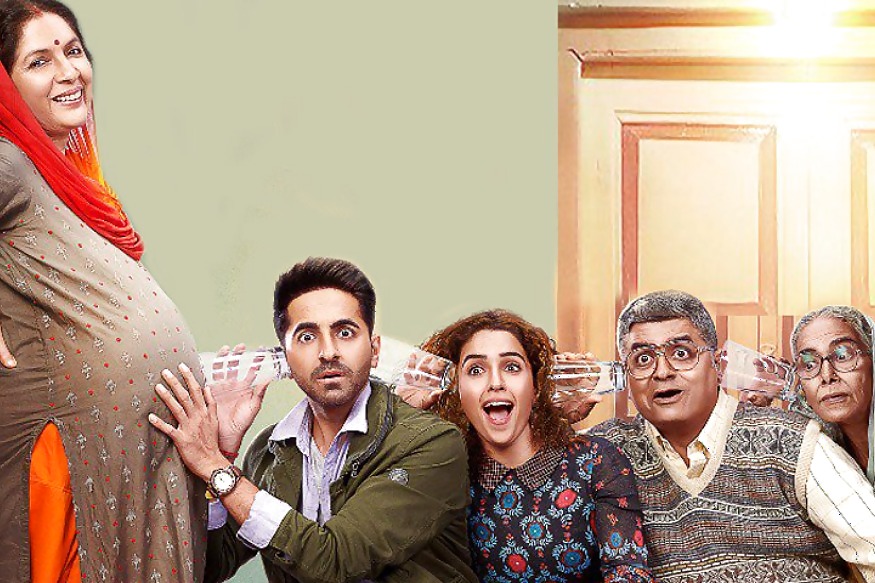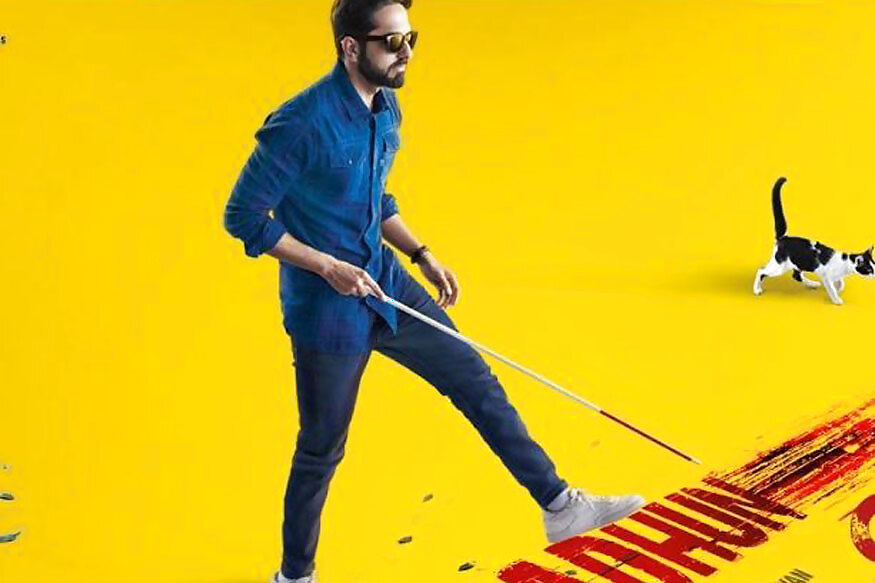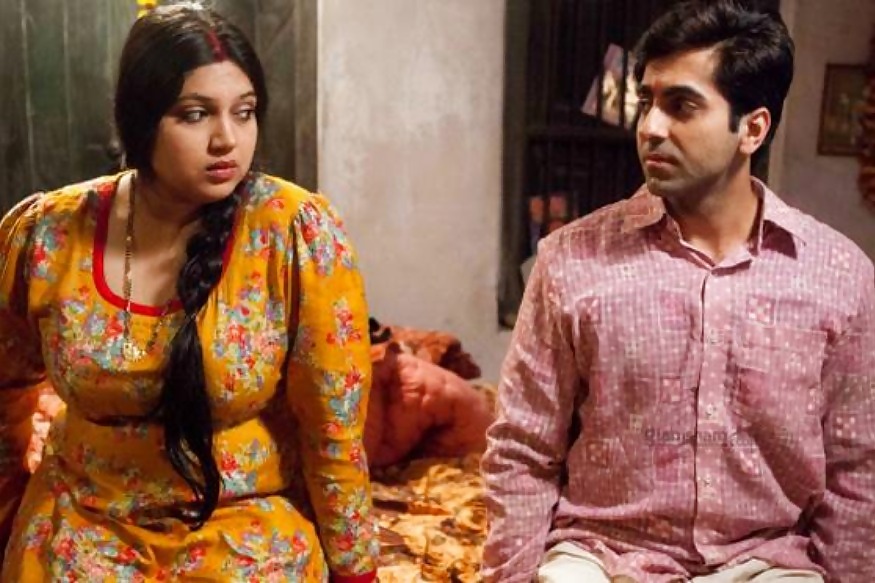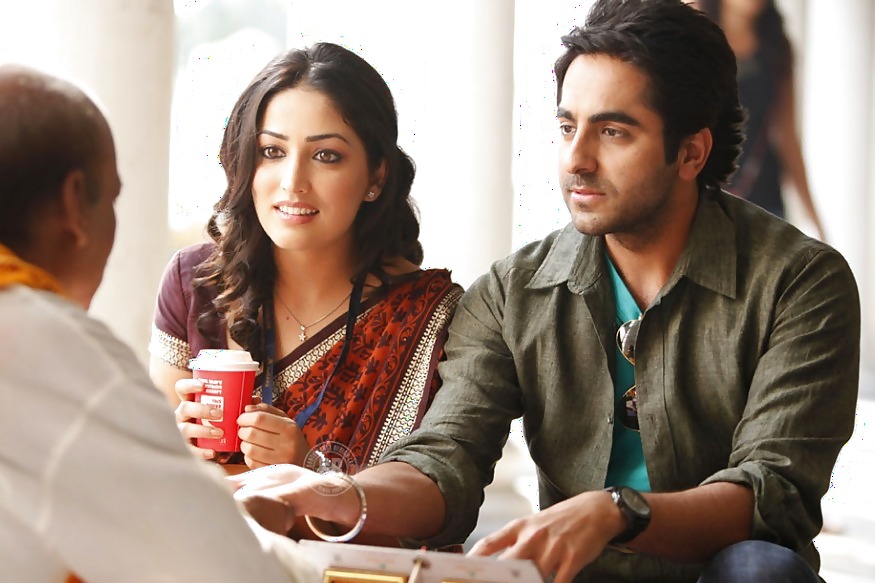
views
Anyone who has seen a blind Ayushmann Khurrana twirling people around his little finger with incredible conviction in AndhaDhun or an awkward Ayushmann Khurrana suffering from erectile dysfunction in Shubh Mangal Saavdhan, would know that the man is not only capable of taking on unconventional roles but is also courageous enough to pull them off.
The year gone by saw Ayushmann feature in two blockbuster movies—Badhaai Ho and Andhadhun-- that made him bigger than just an actor. In 2012, when Ayushmann decided to try his hands at acting with Shoojit Sircar’s Vicky Donor, which touches on the taboo subject of infertility and sperm donation, not only did he prove he could act, he gave many people faith in mainstream Bollywood’s future.
However, his rise in Bollywood began only with the 2015 film Dum Laga Ke Haisha. He soon exploded into the main scene with Ashwiny Iyer’s Tiwary’s 2017 film Bareilly Ki Barfi which sees him in the role of a jilted lover named Chirag Dubey.

Poster of Ayushmann Khurrana's Badhaai Ho.
It’s 2019. Ayushmann Khurrana is probably the most in-demand actor right now. He has got his first Rs 100 crore film in Badhaai Ho, already signed two projects and has been receiving praises from all quarters. “I’m glad that cinema is changing and the audience is accepting the content,” he said. Excerpts from an interview:
Four consecutive hits in a row! What has the success of these films changed for you?
It has given me the validation that I should stick to my guts and follow my sensibilities strictly, rather than following the conventional formula. And, I have always been doing that. I have always chosen to go with my gut and intuition and I’m glad that cinema is changing. The audience is accepting the content and it’s also generating huge numbers, which is great. I’m glad that I’m a part of this era.
You got your first Rs 100 crore film in Badhaai Ho. Did it feel any different, or you took it like the success of any other film of yours?
Of course, it is different, for sure. You have reached a certain number and you have reached the masses in a bigger way. It feels different in a way because there are more takers for this cinema. In 2012, when I began, the middle of the road cinema started with Vicky Donor and it collected over Rs 45 crore. After that, Dum Laga Ke..., Bareilly... and Shubh Mangal... also made about Rs 45 crore each. But in 2018, the entire scenario changed. A film like AndhaDhun, which I thought was slightly off centre, made over Rs 75 crore. It was not really massy for me. It was a genre defining film for me and I thought it’d make around Rs 35 or 40 crore, but it surpassed my expectations. For Badhaai Ho, I was expecting somewhere around 75 or 100 (crore), but it also surpassed my expectations. It only shows that audience of this kind of cinema has increased, or maybe they have changed. That was the difference between the success of 2012 and 2018.

Poster of Ayushmann Khurrana's Andhadhun.
Having said that, do you think our obsession with box office numbers is somewhere creating unnecessary pressure on artistes? Has all that ever made you nervous?
As an actor, you should not think about numbers. You can only take a decision on a certain script based on instinct. You can make an assessment of how much the film will succeed based on the script. I consume the script like an audience. A lot of stars say, ‘I know my audience.’ But I think I’m the audience, because I’d love to see these films myself, so that is the difference, maybe. I’m really bad with numbers. I know one thing for sure that I understand content. I know what film will resonate with me and I also know that will resonate with the audience also. But at the same time, the pressure of expectation is good. It’s great to have that expectation from your actors. If you think that a particular actor can promise you good entertainment with content, I think that’s a great space to be in.
What is this fascination for taboo-breaking subjects? Do you consciously look for such scripts or they just happen to come your way now that you have literally become the face of experimental cinema in the industry?
It’s both ways. That’s what you do generally when you make space for yourself in the industry. You believe in these subjects. I come from street theatre background and have been dealing with taboos since college days. I sometimes feel that it’s an extension of my street theatre background, and more than anything else, people love watching these films because they are radical and there’s no reference point to these films in the past. So, it just makes them more normal.

Ayushmann Khurrana and Bhumi Pednekar in a still from Dum Lage Ke Haisha.
You made the announcement of your next project Dream Girl in an extremely cool video on Instagram, wherein you say that you don’t want to be a Delhi guy anymore. You have played the role of a Delhi guy in Vicky Donor, Bewakoofiyaan and Shubh Mangal. Were there any apprehensions when you signed Badhaai Ho? Though, all these films were poles apart in style and subject matter.
It’ll always be a challenge playing a Delhi guy. This was the fourth time I played a Delhi guy. But we made it a point that it should be different. We were from Meerut in Badhaai Ho. I speak with a Meerut accent at home and a slightly anglicised one at the work place and also with my girlfriend and her mother. I speak Haryanvi with my friends, and when I confront a bully in school (referring to a scene in Badhaai Ho). You get to add those layers in Nakul (Ayushmann’s character in Badhaai Ho). Nakul is the bridge between two strata of society in this film. He comes from a middle class family but his girlfriend is from the upper class. It is a great character to play. More than anything else, Delhi is not just Punjabis. It’s also UP. It’s a cusp between UP, MP, Haryana, Punjab and Rajasthan. There are multiple dialects there and you get to play around with a lot of languages in Delhi in a way. You need to discover those parts, so you can just add a change in body language or maybe speak a different accent.
You made an impressive debut with Vicky Donor, but your next three releases failed to draw the audience to the theatres. Was there a point when you lost patience or had self-doubt because of those consecutive failures?
I think any business is a game of patience. You have to be really patient and take it as a learning. Success doesn’t teach you a lot. It’s the failure that teaches you and helps you introspect and realise what went wrong. So, I have seen that phase as a learning, more than anything else. I’m glad those films happened, otherwise it gets difficult in the later part of the career if you have to deal with an unsuccessful film. I have seen a lot of these things and I’m proud of this journey.

Ayushmann Khurrana and Yami Gautam in a still from Vicky Donor.
A lot of actors of your generation are balancing their filmographies with a mix of out-and-out commercial Bollywood masalas and off-beat cinema. How do you see it and how much do you believe in it?
I believe that it’s good to be part of middle of the road cinema. You can get the best of both the worlds. Having said that, I only believe that commercial success is paramount. Numbers are important, the producers feel safe working with you, so that ecosystem is happy if you deliver commercially successful films. I believe that’s the most important thing, followed by the content, but as I said, I would love to do middle of the road cinema, as a follower or the flag bearer.
Follow @news18movies for more




















Comments
0 comment